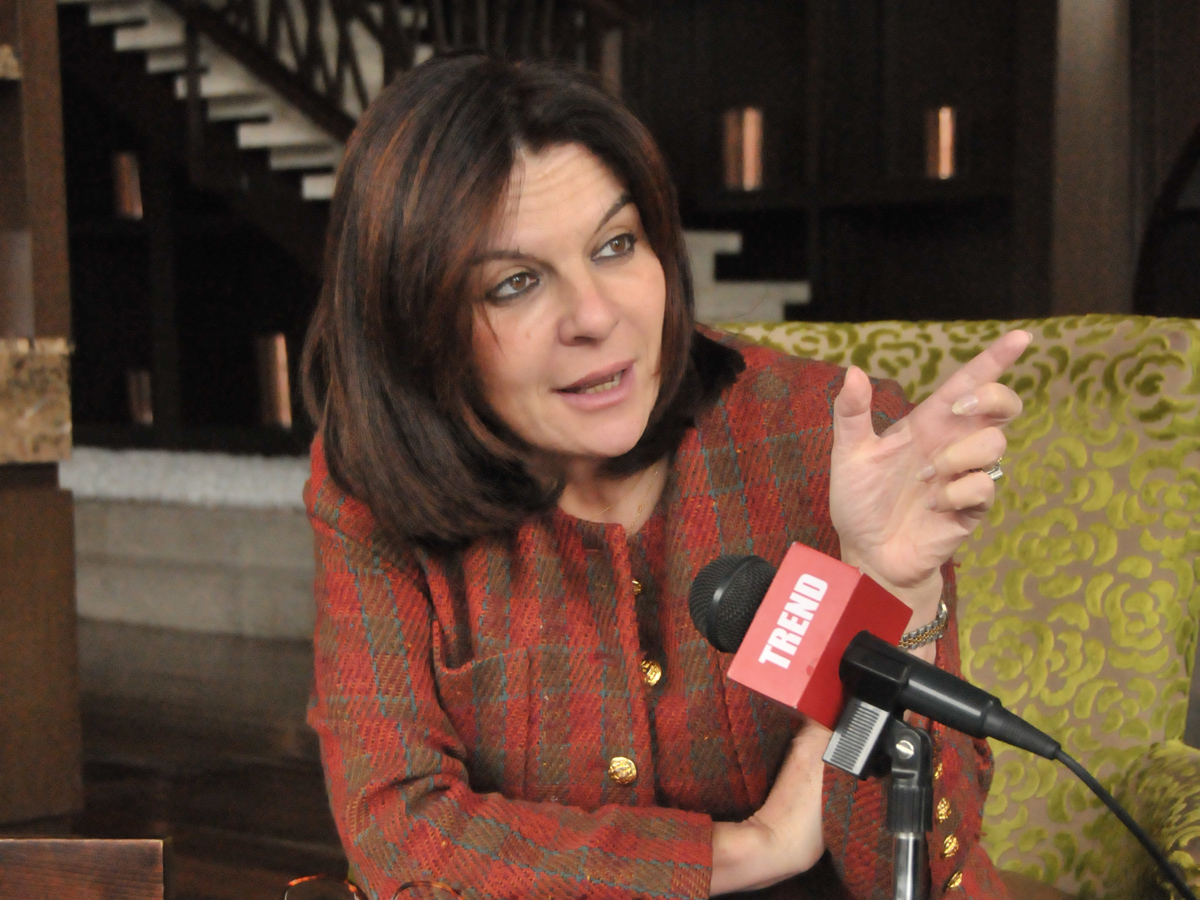Baku, Azerbaijan, Feb.5
By Dalga Khatinoglu - Trend:
As the time for reaching a political agreement on Iran's nuclear program is shortening and self-imposed deadline for a comprehensive agreement looms, a member of the French Senate Commission for International Affairs calls on giving "chance to trust" after two-decade long mistrust.
The nuclear talks between Iran and the permanent members of UN Security Council plus Germany (P5+1) has reached a sensitive point after two extentions to negotiations due to lack of common positions to reach a comprehensive nuclear agreement.
Iranian moderate President Hassan Rouhani said Feb.4, "a nuclear deal with the west is getting closer and the gaps have been narrowed".
Iran and P5+1 are trying to reach a political agreement in March and a comprehensive nuclear deal by June 30.
Amid negotiations, the U.S. Senate Banking Committee voted 18-4 on Jan.29 to advance a bill that would toughen sanctions on Iran if international negotiators fail to reach an agreement on the nuclear program by the end of June.
This action coincides with at least 220 Iranian lawmakers having signed a bill that will oblige the government to cancel the Geneva nuclear deal if there are any new sanctions imposed on Iran from the US.
Responding to a question about the present atmosphere among French lawmakers, the member of the French Senate Commission for International Affairs Nathalie Goulet told Trend Feb.5, "as of this moment, we are not yet sure if 5+1 really wants to wrap up the negotiation. Technically the western world is supposed to have a united position and common consensus to negotiate a deal with Iran".
She said, "as we have experienced in the past, negotiations were derailed because of questions raised in last minutes that could have been tabled before. Most of these questions were deal breakers because of time limits imposed on conclusive comprehensive negotiations. Luckily US Secretary of States and Iran's Foreign Minister Mohammad Javad Zarif. were determined to find the solution. So that is where we are today".
Giving chance to trust
Since Iran's uranium enrichment activities unveiled in August 2002, Iran and West are negotiating to find a solution to give guarantee to ensure the international community that Iran will never make nuclear weapon. During reformist Mohammad Khatami's presidency, Iranian delegation headed by current president Rouhani reached an interim accord with Western delegation headed by the former EU High Representative for Foreign and Security Policy Javier Solana to curb enriching uranium until the concerns around Tehran's nuclear activities are eliminated.
However, when ex-President Mahmoud Ahmadinejad came to power, Iran re-started uranium enrichment, under the arguement that the West was just stalling for time and not serious about allowing Iran to have peaceful nuclear activities.
Since then, Iran faced crippling sanctions imposed by UN Security Council and especially those which were imposed by the West in mid-2012, lead to a two consecutive GDP contractions, as well as halving the country's crude oil export, devalution of national currency by three times, blacklisting Iran's banking system, raising the inflation rate to above 35 percent, etc.
The Vice-Chairman of Parliamentary Group of France and the Gulf Countries Goulet says, "I strongly believe that current negotiators are quite competent to table all the true issues of international concern without any further consultation with relative law making bodies. I think we have been listening enough to different lobbies and political groups whose primary interest had been to sabotage the negotiations by raising false alarms."
According to Goulet, the International Atomic Energy Agency is in a full verification position to tell us whether Iran's nuclear industry poses any threat to the world community. "This is the body that we in the west have selected to monitor the physical aspects of Iran's nuclear industry".
The French lawmaker believes that "we must not forget that reintegration of Iran in world's community will invalidate the relevancy of some of Iran's political foes in the region. Iran with about 80 million population, with all potentials ranging from education and natural resources, could play an important role in regional development and stability".
"The West lost a big opportunity to conduct the exact same negotiation at the time of presidency of Mr. Khatemi with more or less the exact same people. We were mislead then and we will lose the opportunity again if we do not adjust our demands with reality. We have conducted more than two decades of mistrust in negotiating with Iran with an absolute "zero" result," she added.
The member of French Senate added, "it is now a high time to give trust a chance".
Edited by CN
Dalga Khatinoglu is an expert on Iran's energy sector, head of Trend Agency's Iran news service.
Follow him on @dalgakhatinoglu






